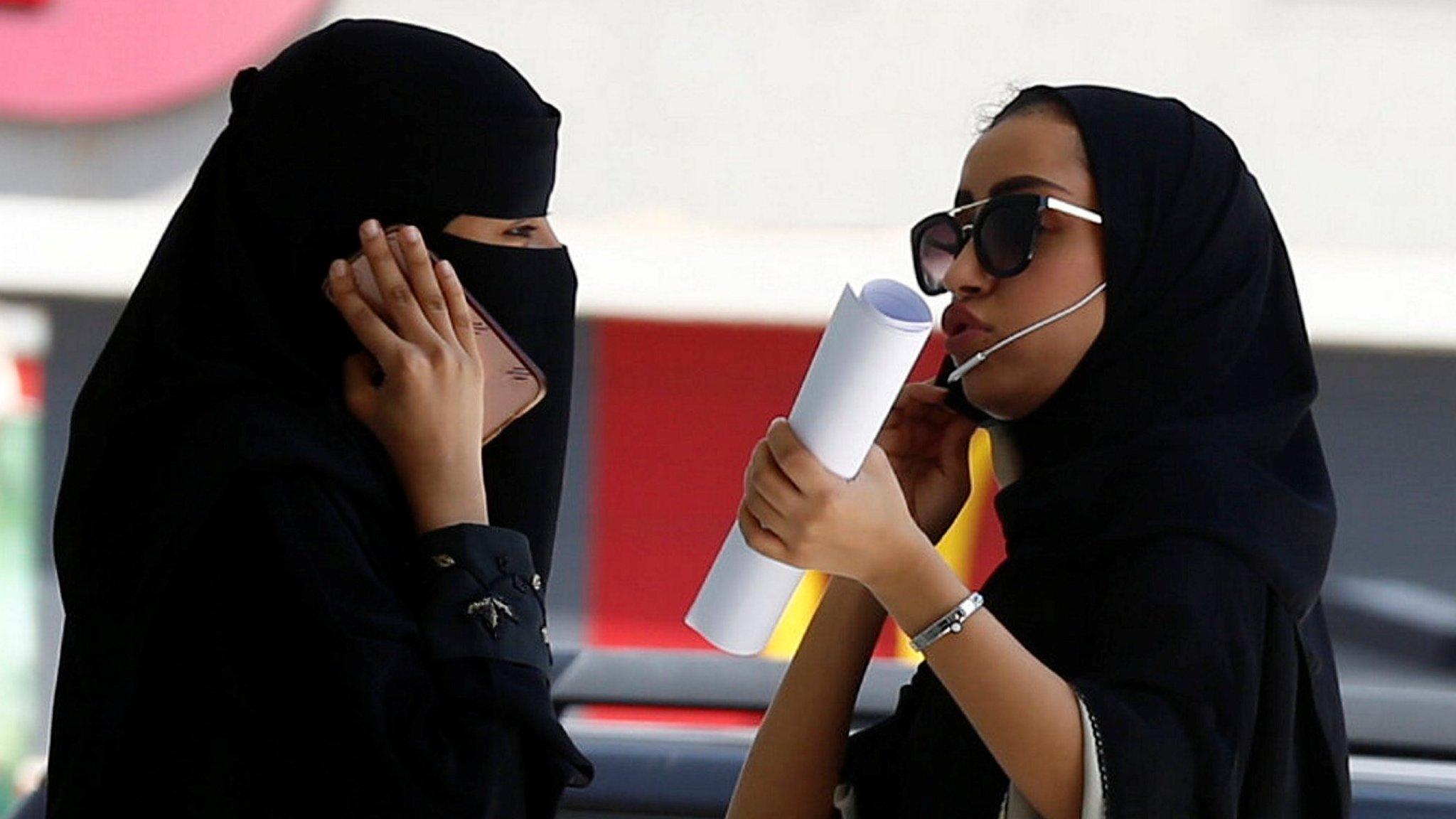Saudi Arabia to allow cinemas to reopen from early 2018
- Published
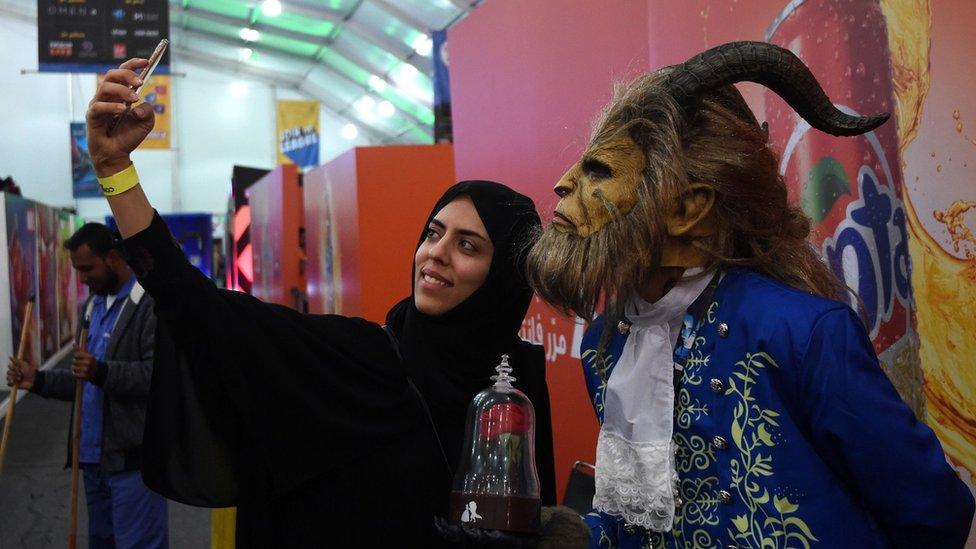
Fans dressed as famous film characters at a Comic Con Arabia event in Riyadh last month
Saudi Arabia has announced it will lift a ban on commercial cinemas that has lasted more than three decades.
The ministry of culture and information said it would begin issuing licences immediately, external and that the first cinemas were expected to open in March 2018.
The measure is part of Crown Prince Mohammed bin Salman's Vision 2030 social and economic reform programme.
The conservative Muslim kingdom had cinemas in the 1970s, but clerics persuaded authorities to close them.
As recently as January, Grand Mufti Sheikh Abdul Aziz Al al-Sheikh reportedly warned of the "depravity" of cinemas, external, saying they would corrupt morals if allowed.
Saudi Arabia's royal family and religious establishment adhere to an austere form of Sunni Islam known as Wahhabism, and Islamic codes of behaviour and dress are strictly enforced.
A statement issued by the culture ministry on Monday said the decision to license cinemas was "central to the government's programme to encourage an open and rich domestic culture for Saudis".
"This marks a watershed moment in the development of the cultural economy in the Kingdom," Culture Minister Awwad Alawwad said.
"Opening cinemas will act as a catalyst for economic growth and diversification; by developing the broader cultural sector we will create new employment and training opportunities, as well as enriching the kingdom's entertainment options."
A young crown prince is shaping change in the Saudi kingdom.
The ministry said the move would open up a domestic market of more than 32 million people and that it anticipated there would be more than 300 cinemas with 2,000 screens by 2030.
Vision 2030, unveiled by the 32-year-old crown prince last year, aims to increase household spending on cultural and entertainment activities in the oil-dependent kingdom from 2.9% to 6% by 2030.
"It is a beautiful day in #SaudiArabia!" wrote the Saudi director Haifaa Al Mansour on Twitter following the announcement, external.
Saudi authorities also began sponsoring concerts this year.
US hip hop artist Nelly and Algerian singer Cheb Khaled will perform in the Red Sea city of Jeddah on Thursday, though the event is open to men only.
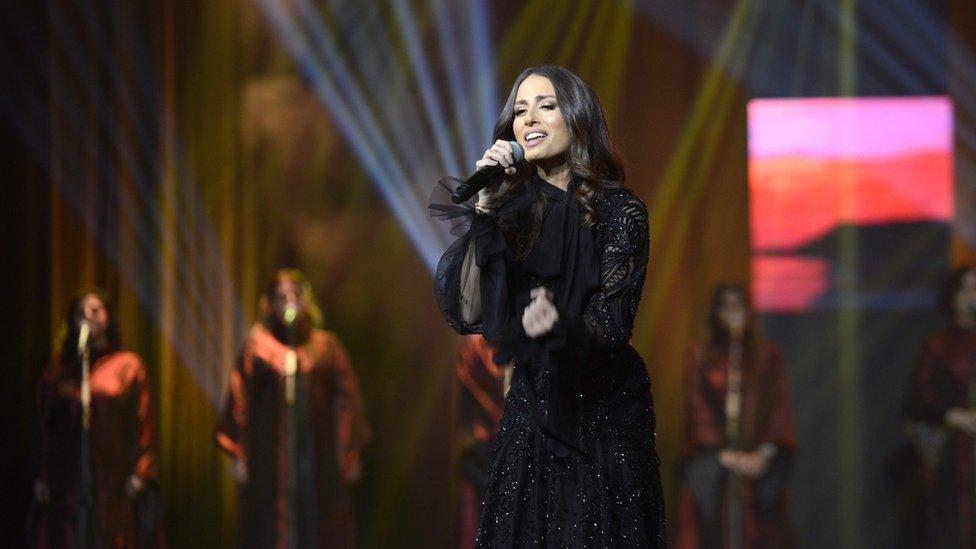
Hiba Tawaji became the first female musician to perform at a concert in Saudi Arabia last week
In September, King Salman announced that women would be permitted to drive in Saudi Arabia for the first time from June 2018 - another move opposed by clerics,
And at an economic conference attended by foreign investors the following month, Prince Mohammed declared that Saudi Arabia would once again be "a country of moderate Islam that is open to all religions, traditions and people".
Seventy per cent of the Saudi population were under 30 and they wanted a "life in which our religion translates to tolerance, to our traditions of kindness ", he said.
He insisted Saudi Arabia "was not like this before 1979", when there was an Islamic revolution in Iran and militants occupied Mecca's Grand Mosque. Afterwards, public entertainment was banned and clerics were given more control over public life.
Prince Mohammed has also cracked down on dissent and launched an anti-corruption drive that has seen hundreds of people, among them senior princes and prominent businessmen, detained and offered pardons in exchange for financial settlements with the state.
- Published5 December 2017
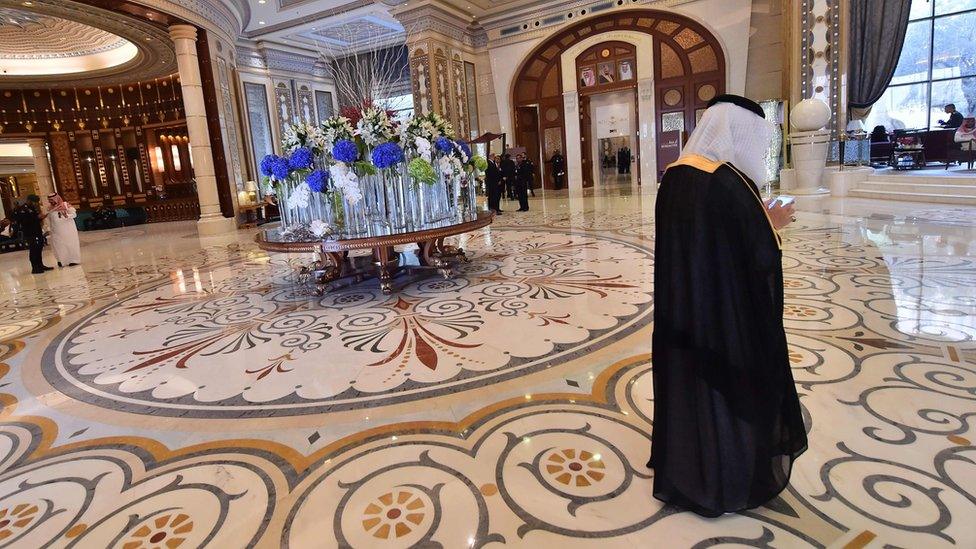
- Published3 December 2017

- Published6 October 2020
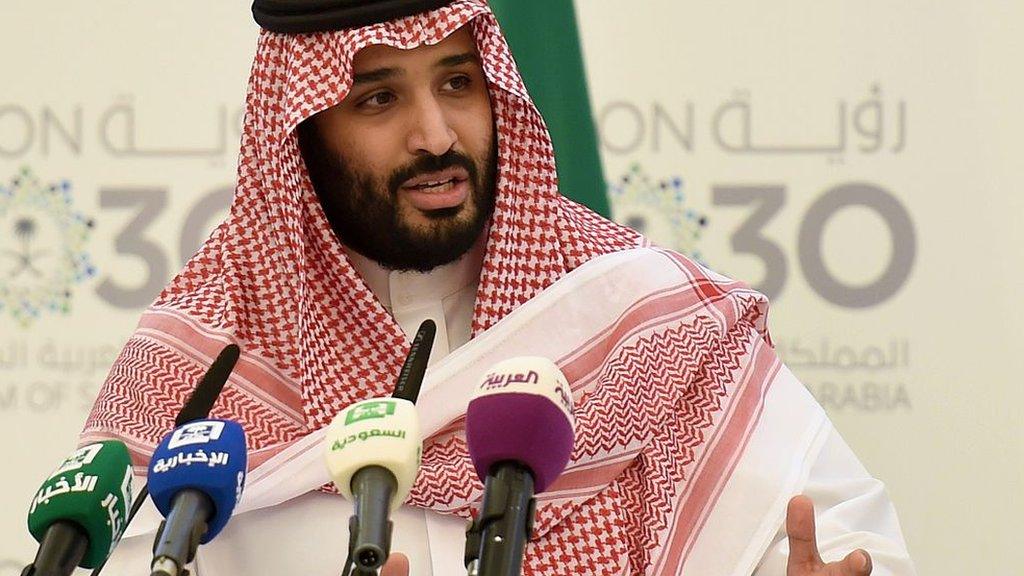
- Published8 November 2017
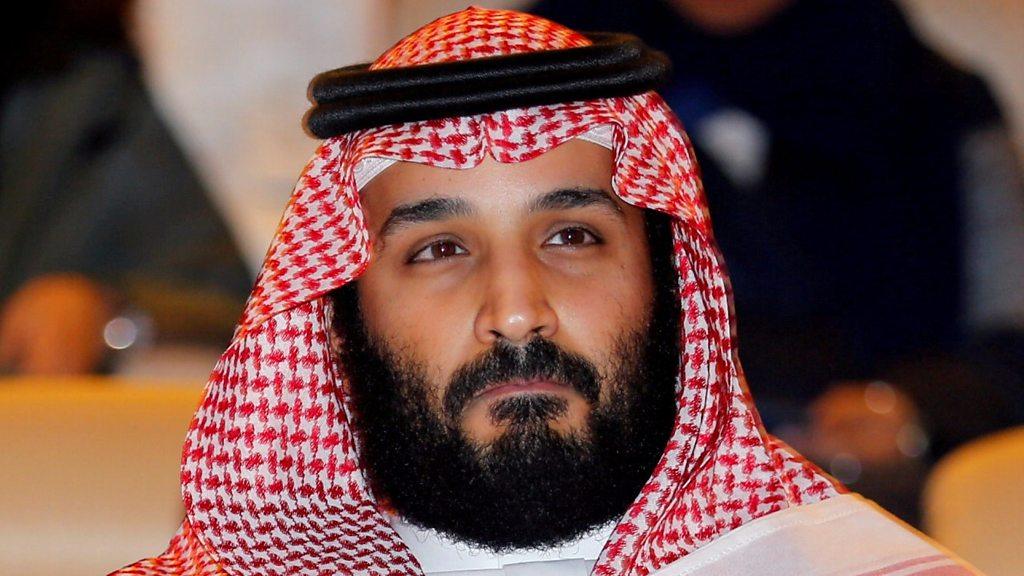
- Published5 November 2017
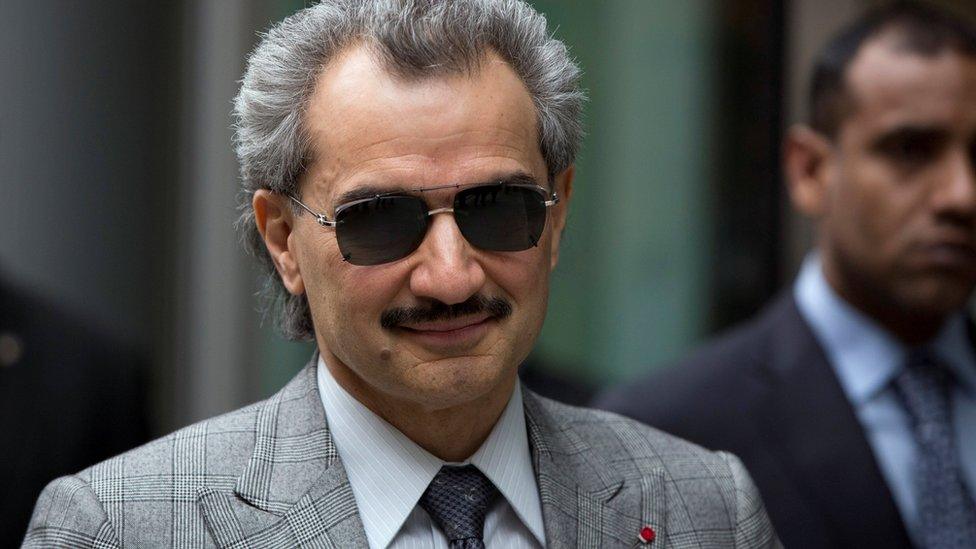
- Published25 October 2017
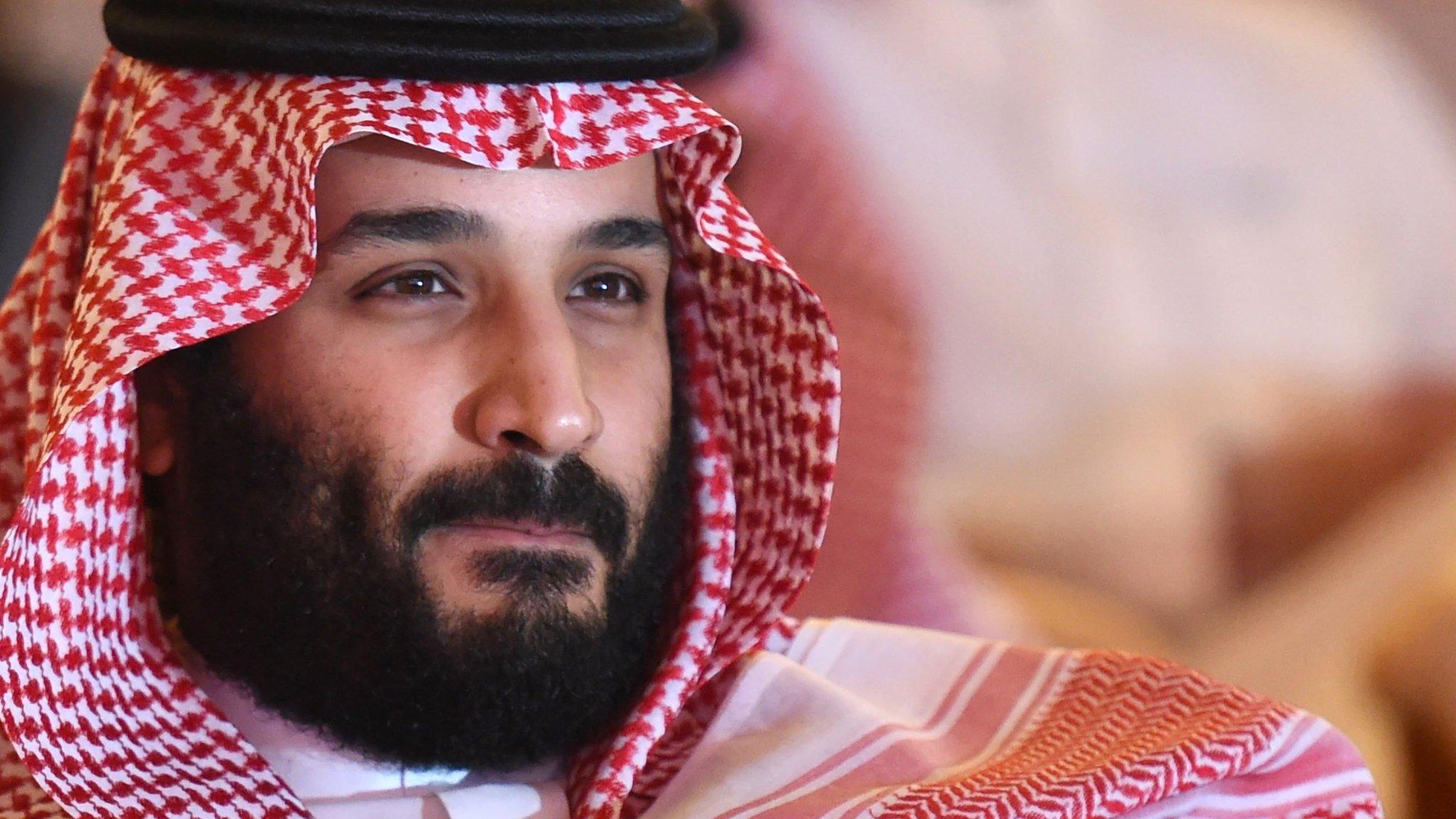
- Published27 September 2017
